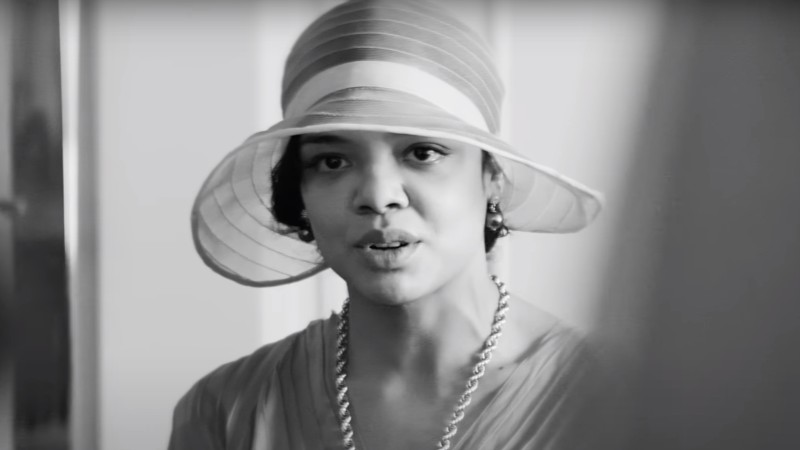




The directorial debut of actress Rebecca Hall is based on a novella by Nella Larsen, a female African American writer active in the 1920s. She is widely considered one of the most important writers of the Harlem Renaissance, which was a wide-ranging cultural movement centred around the New York district. The literature that came out of this movement was very much the African American equivalent of the Modernist movement. Larsen only wrote two novels and some short stories. Passing has become a favourite in African-American, feminist and queer studies classes in more recent years.
The story concerns two light-skinned young women, Irene Redfield (Tessa Thompson) and Clare Kendry (Ruth Negga), who reconnect in adulthood after not seeing one another for some time. Irene is fairly comfortable with her blackness and her place in society, Clare passes as white, and is married to wealthy, bigoted white man. The two soon go their separate ways, but a letter from Clare brings them together yet again.
The film is quiet, and could be too slow for some audiences despite its relatively short 98-minute running time. It’s been sold to Netflix for 16 million, and I’m curious as to how this film will fare on a television screen with their more “general audience” viewership. It’s a film about glances and gestures, and what isn’t said is more important than what is. There has been much speculation since the publication of the book, and I’m sure the film will intensify it, over exactly what the relationship between the women is. You can easily see it as a romance. and the point of view shots of one woman to another certainly suggests infatuation at times. The key moment is the way one woman touches the other’s hand.

Typically, when an actor turns director they are able to attract an outstanding cast, and this project was no exception. It might be Irene’s story by the end, but Negga’s Clare is the life of the film and bring some serious Daisy Buchanan energy to the character. Alexander Skarsgård continues his career trajectory of just playing reprehensible men of the highest order with his portrayal of Clare’s husband. André Holland, who is always reliable, even in bad films, plays Irene’s husband; Bill Camp, who is literally in everything good in the last few years including Joker (Todd Phillips, 2019), Dark Waters (Todd Haynes, 2020) and The Queen’s Gambit to name just a few, plays a writer friend of Irene’s who is on the organising committee for a Negro Welfare League dance that becomes the centrepiece of the film. The male supporting cast compliments the two leads, but at the end of the day it’s about Clare and Irene.
The film is gorgeously photographed in black and white, and uses the classic academy ratio (4:3). This is time-appropriate but you could also say that it symbolises the narrow boxes inside which the two women are expected to live their lives in because of the society they existed within. The cinematographer is Eduard Grau, who shoots very elegantly: this is easily his most impressive work since A Single Man, and the final shot is an early contender for the best of the year.
Passing is a thought-provoking drama about race, gender, class and sexuality, and a strong directorial debut from Hall, although you do wonder what Professor Marston & the Wonder Woman director and Passing’s executive producer Angela Robinson would’ve done with the film, since she is one of the very few prominent African-American lesbian directors around.
Passing premiered at the Sundance Film Festival. In cinemas on Friday, October 29th. On Netflix on Friday, November 12th.
https://www.youtube.com/watch?v=SL2jGFOqRCg
















